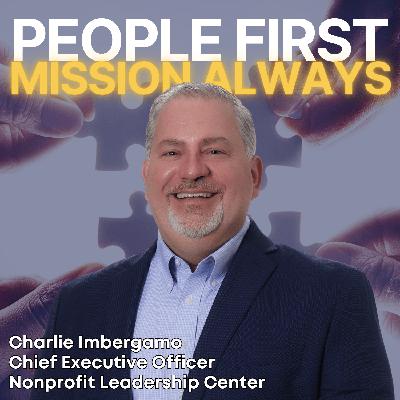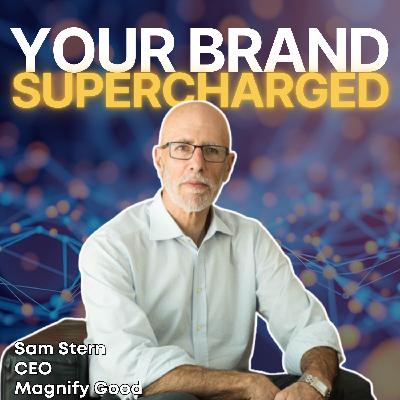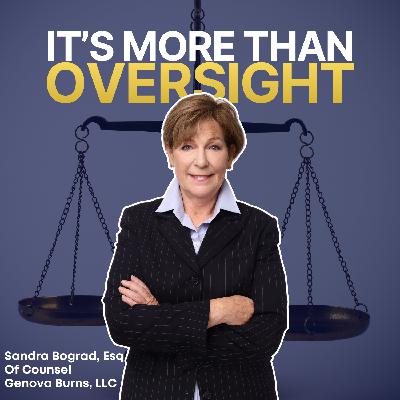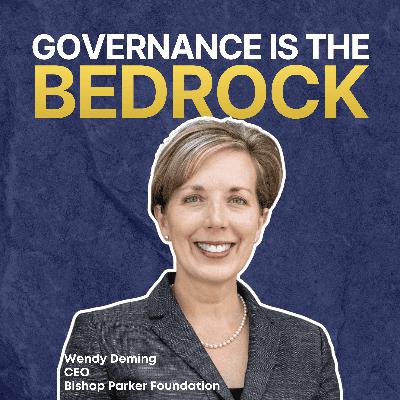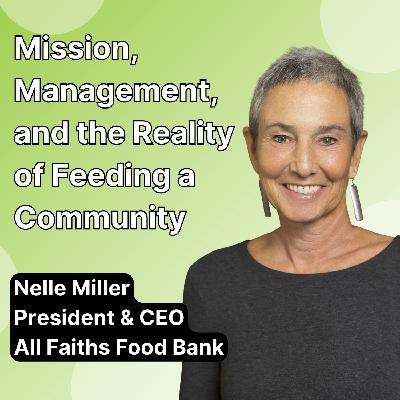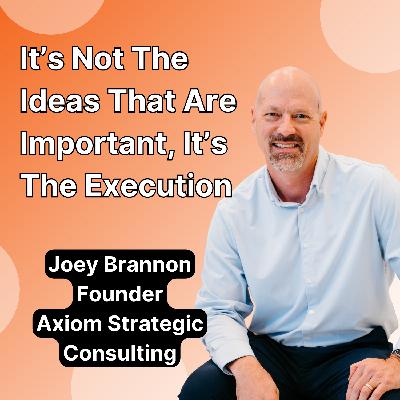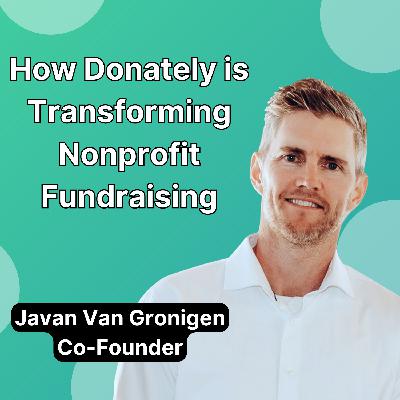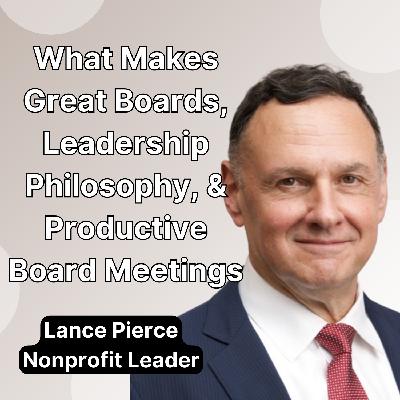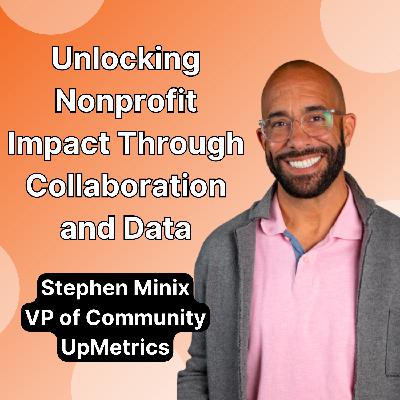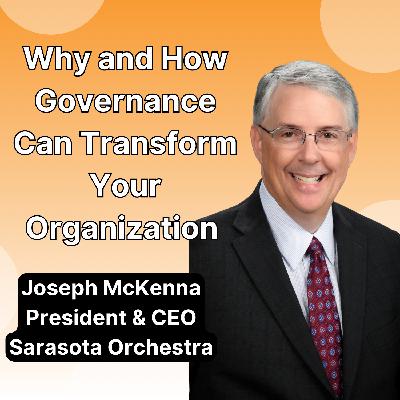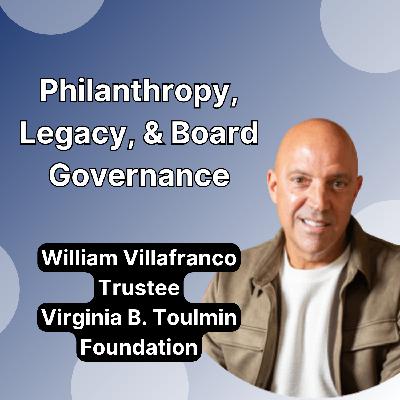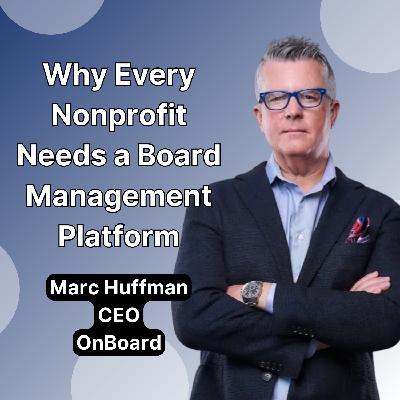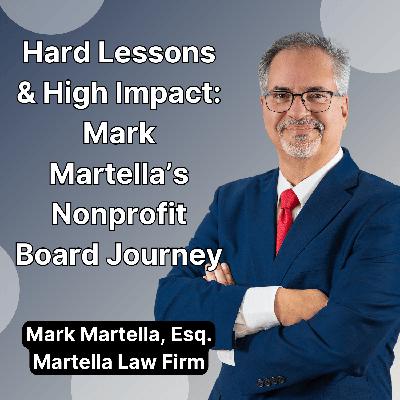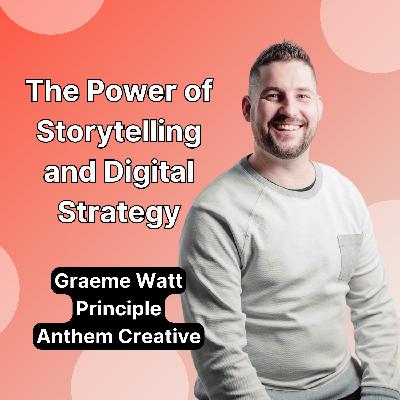Discover I 501(c) You - The Podcast for NonProfit Board Members
I 501(c) You - The Podcast for NonProfit Board Members

I 501(c) You - The Podcast for NonProfit Board Members
Author: The Corley Company, LLC
Subscribed: 8Played: 202Subscribe
Share
© Copyright 2022 All rights reserved.
Description
Welcome to I 501(c) You - The Podcast for NonProfit Board Members. We hope to educate current and future nonprofit board members on the roles, responsibilities, and obligations of being a nonprofit board member.
147 Episodes
Reverse
Why does board engagement feel harder than ever for nonprofits? In this episode of I 501(c) You, Michael sits down with governance consultant Katie Spencer, founder of Zipline Consulting, to explore what is really driving disengaged boards. Drawing on insights from hundreds of nonprofit organizations, Katie explains why executives feel like they are chasing board members and why board members often feel unclear about their role. She outlines four foundational pillars that strengthen board governance, improve accountability, and increase participation. The conversation also covers practical ways to run more strategic board meetings and simplify the board’s role in fundraising. Executive directors, board chairs, and nonprofit leaders will walk away with clear, actionable ideas they can apply immediately.
Linkedin: https://www.linkedin.com/in/katie-kimple-spencer-68480111b/
Website: https://www.ziplineconsulting.com/
Timestamps:
(00:00) Introducing Katie Spencer, Founder of Zipline Consulting
(04:30) Improving Board Engagement
(09:30) 4 Pillars of Board Engagement
(16:10) Quick hitting tips - Better board meetings
(22:20) Board’s role in fundraising
(26:20) Executive & Board Chair partnership
(28:55) Recapping with Read
Join us every other week as we release a new podcast with information about how you can be the best board member and provide great service to your organization.
Listen to the podcast on any of the following platforms:
YouTube
Apple Podcasts
Spotify Podcasts
Amazon
iHeartRadio
Visit us at: www.thecorleycompany.com/podcast
Nonprofit fraud is an issue that leaders cannot afford to ignore, even though it is often uncomfortable to discuss. In this episode, Michael speaks with Jeff Limbocker, a longtime healthcare CFO and current COO of Sarasota Memorial Health Care System, about how fraud actually occurs in nonprofit organizations and what can be done to reduce the risk. Drawing on decades of experience, Jeff explains why fraud often begins small, why expense reporting is a common vulnerability, and why auditors do not typically uncover these issues. This conversation offers practical insights for nonprofit board members, executives, and finance leaders who want to strengthen oversight, protect donor trust, and build more effective internal controls.
Timestamps:
(00:00) Introducing Jeff Limbocker, COO of Sarasota Memorial Health Care System
(02:00) Observations of fraud as a COO
(03:15) How does fraud start and happen?
(08:20) Lack of controls or subverting controls?
(09:30) Why don’t auditors find fraud?
(12:05) How does the board provide oversight of the CEO/Executive Director?
(15:10) Role of the board in smaller organizations
(17:20) Preventing fraud in cash-strong organizations
(19:00) Shouldn’t fraud be caught sooner?
(23:30) Advice for board members
(25:15) Red flags to look out for
(27:44) Recapping with Read
Join us every other week as we release a new podcast with information about how you can be the best board member and provide great service to your organization.
Listen to the podcast on any of the following platforms:
YouTube
Apple Podcasts
Spotify Podcasts
Amazon
iHeartRadio
Visit us at: www.thecorleycompany.com/podcast
Fraud does not just happen in big corporations. It happens in nonprofits too, often quietly and over time. In this episode, CPA and nonprofit practice leader Brian Carter joins the show to explain how fraud and abuse actually occur inside nonprofit organizations. Using real examples from a major health foundation and a local Little League, Brian breaks down why audits do not always catch fraud, how weak internal controls create opportunity, and what board members should realistically be doing to protect the mission and the money. If you serve on a nonprofit board or work closely with one, this conversation offers practical guidance on governance, fiduciary responsibility, and how to spot problems before they spiral.
Timestamps:
(00:00) Introducing Brian Carter, CPA, Nonprofit Practice Leader & Partner, Mauldin & Jenkins
(02:00) How can a board mitigate fraud? Jackson Health Foundation Fraud case
(03:00) What financial controls should be in place?
(06:35) Controls with electronic signatures
(11:05) Should this have been caught?
(13:15) Why would an audit not find this?
(16:00) Sarasota Little League scenario
(22:00) How do you ensure continuity of controls for a high turnover organization?
(25:40) Final advice
(26:55) Recapping with Read
Join us every other week as we release a new podcast with information about how you can be the best board member and provide great service to your organization.
Listen to the podcast on any of the following platforms:
YouTube
Apple Podcasts
Spotify Podcasts
Amazon
iHeartRadio
Visit us at: www.thecorleycompany.com/podcast
What does a community foundation actually do, and what makes its board effective? In this episode of I501(c)You, Michael sits down with Phillip Lanham, President & CEO of Gulf Coast Community Foundation, to break down the role community foundations play in inspiring philanthropy and creating measurable regional impact. Phillip shares his path from higher education fundraising to community foundation leadership, explains how boards are governed, and offers practical insight on working with donor-board members, building strong board chair relationships, and using a foundation’s convening power to strengthen nonprofits through grants, capacity building, and rapid-response funding when the community needs it most.
Timestamps:
(00:00) Introducing Phillip Lanham, President & CEO, Gulf Coast Community Foundation
(03:10) What compelled you to join a community foundation?
(04:30) The role of community foundations
(07:15) How is a community foundation governed?
(08:25) What makes for a good board member?
(09:45) Any opportunities when board members are also donors?
(10:40) Role of the board chair
(11:45) How do you structure your relationship with your board chair?
(13:25) How do other board members interact?
(15:45) How do community foundations work with nonprofits?
(20:10) The power to convene
(21:30) Structure of Gulf Coast Community Foundation
(23:15) Learning curves of being CEO
(24:55) Most rewarding aspect of being CEO
(26:40) Biggest surprises
(28:25) Advice to a future CEO
(30:00) Recapping with Read
Join us every other week as we release a new podcast with information about how you can be the best board member and provide great service to your organization.
Listen to the podcast on any of the following platforms:
YouTube
Apple Podcasts
Spotify Podcasts
Amazon
iHeartRadio
Visit us at: www.thecorleycompany.com/podcast
What does it really take to move from trusted insider to CEO while keeping your board focused on strategy instead of “sausage-making”? In this episode of the I 501(c)You podcast for nonprofit board members, Michael sits down with Charlie Imbergamo, CEO of the Nonprofit Leadership Center, to unpack his journey from faith-based education leader to head of a regional hub for nonprofit talent development. Charlie shares how he navigated a rigorous internal succession process, leads with a “people first, mission always” mindset, and keeps both his board and small staff aligned around the what of strategy instead of getting lost in the how. You’ll hear practical rhythms for board communication, how pre-reads transformed their meetings, why they only meet when decisions are needed, and how tools like Asana and virtual training help them serve 700+ nonprofits a year.
Timestamps:
(00:00) Introducing Charlie Imbergamo, CEO of Nonprofit Leadership Center
(05:45) Living what we teach
(08:40) Approaching transitioning from staff to CEO
(12:15) Charlie’s approach to strategy
(15:15) Keeping your organization focused on the ‘what’
(18:50) Creating an engaged board
(23:00) Approach to board meetings
(26:30) Communicating with staff
(30:00) What is the Nonprofit Leadership Center?
Join us every other week as we release a new podcast with information about how you can be the best board member and provide great service to your organization.
Listen to the podcast on any of the following platforms:
YouTube
Apple Podcasts
Spotify Podcasts
Amazon
iHeartRadio
Visit us at: www.thecorleycompany.com/podcast
Small nonprofits often feel outmatched in brand and communication work. This week’s conversation with Sam Stern shows why that gap is closing fast. Sam is the CEO of Magnify Good and the creator of Connection Works. He explains how AI can give small organizations the clarity, confidence, and steady output that used to require a full communications staff. We look at why brand is more than colors and logos, how AI can match your voice, and how stronger storytelling leads to stronger fundraising. For nonprofit leaders working with limited time and capacity, this episode offers a realistic view of what is possible and why now is the right moment to move forward.
Check Out Connection Works Here:
https://www.magnifygood.com/aifornonprofits/
Timestamps:
(00:00) Introducing Sam Stern, Chief Executive Officer, MagnifyGood
(03:00) Opportunities for technology in nonprofits
(06:15) Getting introduced to AI
(09:00) Training the AI on your information
(11:05) What is a brand?
(12:30) How does the product work?
(16:00) Should board members be concerned about AI?
Join us every other week as we release a new podcast with information about how you can be the best board member and provide great service to your organization.
Listen to the podcast on any of the following platforms:
YouTube
Apple Podcasts
Spotify Podcasts
Amazon
iHeartRadio
Visit us at: www.thecorleycompany.com/podcast
This week on I 501(c) You, Michael sits down with Sandra Bograd, Of Counsel at Genova Burns, to unpack the often-misunderstood world of nonprofit and corporate board governance. Drawing from decades of experience in law, compliance, and ethics, Sandra breaks down what makes boards effective, how governance in nonprofits and for-profits overlap, and why board members must lean into their fiduciary roles, paid or not. If you've ever wondered what separates a high-impact board from a passive one, this episode is essential listening for nonprofit leaders, board members, and governance professionals.
Timestamps:
(00:00) Introducing Sandra Bograd, Esq., Of Counsel, Genova Burns, LLC
(08:00) How did you navigate stakeholder relationships?
(10:30) What is good governance?
(12:45) Ensuring good governance
(15:00) Getting the board on board
(18:40) Is governance different on for-profit and nonprofit boards?
(20:45) Role of the board chair
(23:05) Prepping for board meetings
(24:30) Benefits of strong board governance
(29:15) Risks of joining a board
(35:25) Thoughts when nonprofits are victims of fraud
(39:35) Board speaking with senior staff
Join us every other week as we release a new podcast with information about how you can be the best board member and provide great service to your organization.
Listen to the podcast on any of the following platforms:
YouTube
Apple Podcasts
Spotify Podcasts
Amazon
iHeartRadio
Visit us at: www.thecorleycompany.com/podcast
In this episode of I 501(c) You, host Michael Corley interviews Wendy Deming, CEO of the Bishop Parker Foundation and a widely respected governance expert. Wendy shares her 25+ year journey through the nonprofit world, the strategic importance of board governance, and why strong leadership and effective board dynamics are key to nonprofit success. She explains how governance directly influences donor trust, organizational sustainability, and even board recruitment. If you're a board member, nonprofit executive, or funder, Wendy’s insights are a masterclass in turning governance into a powerful asset.
Timestamps:
(00:00) Introducing Wendy Deming, CEO of The Bishop Parker Foundation
(06:55) Governance is the bedrock for a solid foundation
(08:15) How can Governance be a strategic asset?
(10:45) Indications that boards need to improve governance
(13:20) What traits make a good nonprofit leader?
(17:30) As a funder, what do you look at before you fund an organization
(23:45) Biggest surprise as the CEO
(26:20) Recapping with Read
Join us every other week as we release a new podcast with information about how you can be the best board member and provide great service to your organization.
Listen to the podcast on any of the following platforms:
YouTube
Apple Podcasts
Spotify Podcasts
Amazon
iHeartRadio
Visit us at: www.thecorleycompany.com/podcast
In this episode of I 501(c)You, Nelle Miller shares what it really takes to lead a nonprofit from the inside out. From her deep experience as a board member to taking on tough interim CEO roles, and now leading All Faiths Food Bank, Nelle walks us through the messy, meaningful, and mission-driven work of nonprofit leadership. She talks governance, the importance of boundaries between boards and staff, and how staying connected to purpose fuels her every day. It’s a rich, honest look at what it means to lead with humility, clarity, and conviction in the nonprofit world.
www.allfaithsfoodbank.org
Timestamps:
(00:00) Introducing Nelle Miller, President & CEO of All Faiths Food Bank
(03:00) Compare and contrast leading for-profit and nonprofit organizations
(06:00) The work of the board
(07:00) Evolution of the All Faiths Food Bank board
(09:15) What experiences as a board member made you a better CEO?
(11:20) Your role as an Interim CEO
(13:30) How do you communicate with the board?
(15:30) How do you stay motivated?
(18:50) How did growing up influence your career?
(20:50) Recapping with Read
Join us every other week as we release a new podcast with information about how you can be the best board member and provide great service to your organization.
Listen to the podcast on any of the following platforms:
YouTube
Apple Podcasts
Spotify Podcasts
Amazon
iHeartRadio
Visit us at: www.thecorleycompany.com/podcast
What does it take to grow a business with purpose and serve effectively on nonprofit boards? In this episode, Michael welcomes Joey Brannon, founder of Axiom Strategic Consulting, for a rich conversation on strategy, execution, and board leadership. Joey shares how his firm helps business owners scale with intention, the rhythms that drive transformation, and why execution, not ideas, creates real value. He also dives into nonprofit board service, offering sharp insights on how to contribute meaningfully, ask the right questions before joining a board, and support both mission and management. Whether you're a nonprofit leader or a business owner looking to give back, this episode is packed with actionable wisdom.
Visit Axiom’s website: https://www.axiomstrategic.com/
Grow with Purpose Podcast Link: https://www.axiomstrategic.com/podcast
Timestamps:
(00:00) Introducing Joey Brannon, Founder, Axiom Strategic Consulting
(03:30) Joey’s approach with clients and developing a discipline of execution
(08:30) Compare and contrast working with for-profit and nonprofit organizations
(13:30) How should board members operate?
(19:50) Advice for those thinking about joining a board
(23:30) Selecting a nonprofit to be on their board
(30:00) Recapping with Read
In this episode of the I 501(c) You podcast, host Michael interviews Randy Scheid, a returning guest and author of the new book Giving Reimagined: Leveraging Technology to Transform the Way We Give. Randy dives into how AI, blockchain, and emerging tech can revolutionize the nonprofit and philanthropic sectors. From using Bitcoin to aid vulnerable communities to rethinking outdated grant processes, this conversation offers a bold vision for how the sector can shift from being tech-averse to tech-first.
Randy’s Linkedin
Find the Book on Amazon: https://a.co/d/2chuaT8
Timestamps:
(00:00) Introducing Randy Scheid, Author, Founder of RGS Partners Consulting
(01:30) Why right the book?
(03:00) Why is this topic important to our sector?
(04:30) What do we need to understand as we read your book?
(07:30) How blockchain can be used for nonprofits
(10:15) Biggest barrier holding the sector back
(14:30) Ethics in AI
(17:00) How to start using AI
(20:45) Recapping with Read
Join us every week as we release a new podcast with information about how you can be the best board member and provide great service to your organization.
Listen to the podcast on any of the following platforms:
YouTube
Apple Podcasts
Spotify Podcasts
Amazon
iHeartRadio
Visit us at: www.thecorleycompany.com/podcast
In this episode of Nonprofit Board Members, host Michael Corley chats with Javan Van Gronigen, co-founder of Donately, to explore the evolving landscape of digital fundraising. Javan shares his journey from creative agency work to mission-driven tech innovation, and explains how Donately is helping nonprofits modernize their donor experience. They dig into why targeting matters, the power of board members in fundraising, and how nonprofits can avoid donor fatigue. Plus, Javan offers insights on AI, digital trust, and why nonprofits must embrace content strategy now, not later.
https://www.donately.com/
Timestamps:
(00:00) Introducing Javan Van Gronigen, Co-Founder of Donately
(02:40) What is Donately?
(04:30) Human expertise on Donately
(05:55) What do nonprofits do that turn away donors?
(11:00) What do board members need to know about fundraising?
(13:30) What is the future of fundraising?
(20:30) Who usually reaches out to Donately?
(22:45) Recapping with Read
Join us every week as we release a new podcast with information about how you can be the best board member and provide great service to your organization.
Listen to the podcast on any of the following platforms:
YouTube
Apple Podcasts
Spotify Podcasts
Amazon
iHeartRadio
Visit us at: www.thecorleycompany.com/podcast
In this episode of I 501(c) You, Lance Pierce, multiple-time CEO and a seasoned leader in global development, climate policy, and corporate social responsibility, shares hard-earned wisdom from decades across sectors. From Peace Corps volunteer to leading tech-collaborative nonprofits, Lance offers deep insight into what makes effective nonprofit boards, how CEOs can cultivate powerful board relationships, and why the sector must embrace reinvention to thrive in a changing world.
Timestamps:
(00:00) Introducing Lance Pierce, Nonprofit Leader, multiple-time CEO
(09:00) The Lance Pierce leadership philosophy
(11:00) What makes for an effective nonprofit leader?
(15:15) What makes for an effective nonprofit board member?
(18:25) How should a CEO work with a board?
(22:30) Structuring the CEO-Board relationship
(24:50) How do you prepare for a board meeting?
(29:55) The Board Chair-CEO relationship
(36:20) Advice to a new CEO
(47:55) Recapping with Read
Join us every week as we release a new podcast with information about how you can be the best board member and provide great service to your organization.
Listen to the podcast on any of the following platforms:
YouTube
Apple Podcasts
Spotify Podcasts
Amazon
iHeartRadio
Visit us at: www.thecorleycompany.com/podcast
Stephen Minix, Vice President of Community at UpMetrics, brings his high‑energy approach to collaboration, impact measurement, and storytelling in the nonprofit world on this episode of I 501(c) You. A former basketball coach and educator turned community leader, Stephen shares how nonprofits and funders can use data and trust‑based relationships to work better together and create lasting change. From why “collaboration moves at the speed of trust” to how measuring outcomes can unlock new opportunities, this conversation is packed with insights for nonprofit board members, executive directors, and funders who want to maximize their impact.
Visit UpMetrics website at: Upmetrics.com
Timestamps:
(00:00) Introducing Stephen Minix, Vice President of Community at UpMetrics
(02:55) What is UpMetrics?
(06:00) Why is collaboration so important in the nonprofit sector?
(07:50) Why are people reluctant to collaborate?
(10:00) How do you work through collaboration resistance?
(12:40) The “what” and “how” of UpMetrics
(17:15) Who usually engages UpMetrics?
(18:50) What do you tell nonprofit board members?
(22:30) Learn more about UpMetrics and Stephen
(24:00) Recapping with Read
Join us every week as we release a new podcast with information about how you can be the best board member and provide great service to your organization.
Listen to the podcast on any of the following platforms:
YouTube
Apple Podcasts
Spotify Podcasts
Amazon
iHeartRadio
Visit us at: www.thecorleycompany.com/podcast
In this episode of I 501(c) You, Joe McKenna, President and CEO of the Sarasota Orchestra and self proclaimed “Governance Junkie,” delivers a masterclass on nonprofit governance, leadership, and board engagement. Joe shares how thoughtful governance structures empower creativity, how to build trust between board and staff, and why eliminating an executive committee created a more engaged and accountable board. He also opens up about personal routines that keep him grounded and shares his two essential book recommendations for nonprofit leaders. Whether you're a new executive director or a seasoned CEO, this episode is packed with wisdom on sustaining mission-driven leadership in a complex world.
Joe’s Book Recommendations:
Governance as Leadership
Conquering Crisis
Timestamps:
(00:00) Introducing Joseph McKenna, President and CEO of Sarasota Orchestra
(02:00) Joe’s leadership philosophy
(03:30) Joe is a “Governance Junkie”
(06:45) Define Governance
(12:00) Who is responsible for governance?
(14:50) Why do you not have an Executive Committee?
(18:30) Committee Structure
(24:30) Creation of the Music Hall
(27:45) Keeping staff working towards the larger goal but still completing daily tasks
(29:30) How Joe manages his schedule
(32:45) Advice for Executive Directors
(34:30) Recapping with Read
Join us every week as we release a new podcast with information about how you can be the best board member and provide great service to your organization.
Listen to the podcast on any of the following platforms:
YouTube
Apple Podcasts
Spotify Podcasts
Amazon
iHeartRadio
Visit us at: www.thecorleycompany.com/podcast
In this episode of I 501(c) You, we sit down with Bill Villafranco, trustee of the Virginia B. Toulmin Foundation and executive director of MyFace.org, for an inspiring conversation about leadership, philanthropy, and legacy. Bill shares his unique journey into nonprofit work, shaped by personal loss and mentorship, and offers a rare dual perspective on what it takes to lead as both a board member and an executive director. From navigating donor intent and intergenerational giving to managing board relationships and launching innovative community programs, this episode is packed with real-world insights for nonprofit leaders, board members, and anyone passionate about making an impact.
Timestamps:
(00:00) Introducing Bill Villafranco, Board of Trustee of Virginia B. Toulmin Foundation and Executive Director of MyFace
(04:26) Responsibility of a lifetime appointment
(05:56) How are you making sure the Virginia B. Toulmin name exists into perpetuity?
(08:36) Multi-generational philanthropic strategy
(11:31) Becoming the Executive Director of MyFace
(21:26) How will you be a better board member due to your work as an Executive Director?
(23:46) What should board members know about being an Executive Director?
(25:16) What advice would you give to businesspeople who are thinking about being on a board?
(26:06) Final advice?
(27:16) Recapping with Read
Join us every week as we release a new podcast with information about how you can be the best board member and provide great service to your organization.
Listen to the podcast on any of the following platforms:
YouTube
Apple Podcasts
Spotify Podcasts
Amazon
iHeartRadio
Visit us at: www.thecorleycompany.com/podcast
In this episode of I 501(c) You, host Michael Corley sits down with Marc Huffman, CEO of OnBoard, to explore how board management software is transforming nonprofit governance. With decades of experience in the tech industry and a deep understanding of mission-driven organizations, Marc shares insights on why nonprofits should move beyond spreadsheets and email chains, how AI is streamlining board operations, and why secure, easy-to-use platforms are the future of effective board meetings. Whether you're a nonprofit executive, board chair, or passionate volunteer, this episode reveals how the right tools can make governance simpler, smarter, and more strategic.
Visit OnBoard's Website: www.onboardmeetings.com
Timestamps:
(00:00) Introducing Marc Huffman, CEO of OnBoard and eScribe
(02:40) Why is this important for nonprofit organizations?
(04:00) Why should boards have a board management software?
(06:20) Security of board information
(07:25) What is the main resistance that nonprofits have with this software?
(08:50) What kinds of organizations use this and who from the organization usually reaches out?
(10:05) How does a software like this improve governance?
(11:50) Role of AI with this product
(15:15) Compare and contrast the software in nonprofit and for-profit organizations
(18:00) Recapping with Read
Join us every week as we release a new podcast with information about how you can be the best board member and provide great service to your organization.
Listen to the podcast on any of the following platforms:
YouTube
Apple Podcasts
Spotify Podcasts
Amazon
iHeartRadio
Visit us at: www.thecorleycompany.com/podcast
In this episode of I501(c)You, we sit down with estate planning attorney and seasoned nonprofit board chair Mark Martella to explore what makes board service meaningful—and effective. Mark shares powerful lessons from decades of leadership across organizations like the Charlotte County Homeless Coalition, Charlotte County Chamber, and Senior Friendship Centers. From navigating financial crises to developing earned income strategies and building trust with executive leadership, Mark offers practical insights for current and aspiring board members. Whether you're leading a nonprofit or considering joining a board, this episode is packed with real-world advice on governance, fundraising, and finding the right mission fit. Tune in for a candid, inspiring conversation that highlights why nonprofit board service is one of the best ways to grow as a leader.
Mark's Website: https://www.martellalaw.com/
Timestamps:
(00:00) Introducing Mark Martella, Esq. of Martella Law Firm
(04:30) Why do you serve on nonprofit boards?
(06:25) I501(c)3 vs 501(c)6
(08:45) What made you say “yes” to board service?
(10:15) Board chair philosophy
(11:30) Engaging all the board members
(12:40) What makes a good board member?
(14:10) How has being a board member helped you in business?
(16:30) Advice for young people to join a board
(18:00) Encouragement to join a nonprofit board
(19:50) Recapping with Read
Join us every week as we release a new podcast with information about how you can be the best board member and provide great service to your organization.
Listen to the podcast on any of the following platforms:
YouTube
Apple Podcasts
Spotify Podcasts
Amazon
iHeartRadio
Visit us at: www.thecorleycompany.com/podcast
In this episode of I 501(c) You, we sit down with Graeme Watt, Principal and Lead Strategist at Anthem Creative, to explore why digital storytelling is the future of nonprofit fundraising. Graeme shares his powerful journey from launching a grassroots youth nonprofit to leading digital strategy at World Vision, and now running a global creative agency serving hundreds of nonprofits. He breaks down how storytelling drives donor engagement, why your board must prioritize a digital strategy, and how emerging technologies like AI are already transforming philanthropy. Whether you're a nonprofit leader, board member, or fundraiser, this episode will shift your mindset and equip you with actionable insights to thrive in today’s digital-first world.
Anthem Creative's Website
To learn more about S.A.N.:
S.A.N.'s X Account
S.A.N.'s Website
S.A.N.'s Impact
Interview with S.A.N. and its creators
Rainforest Foundation US
Timestamps:
(00:00) Introducing Graeme Watt, Principle at Anthem Creative
(06:00) What do you mean by “digital?”
(07:15) How do you help nonprofits develop a digital storytelling strategy?
(10:10) Getting more funding digitally
(13:15) The importance of storytelling
(15:40) The future/present of AI fundraising and AI agents
(20:30) What is the responsibility of the board in the future?
(21:50) The future of AI for nonprofits and fundraising
(25:00) What is Anthem Creative?
(29:00) Advice to organizations
(32:14) Recapping with Read
Join us every week as we release a new podcast with information about how you can be the best board member and provide great service to your organization.
Listen to the podcast on any of the following platforms:
Apple Podcasts
Spotify Podcasts
Amazon
iHeartRadio
Visit us at: www.thecorleycompany.com/podcast
In this episode of I501(c)You – The Podcast for Nonprofit Board Members, marketing leader and seasoned board chair Patricia Courtois shares powerful insights on what makes a truly effective board member and how to bring out the best in others around the table. With real stories from her decades of board service and leadership in the nonprofit and business sectors, Patricia covers everything from how to respectfully partner with a CEO, to navigating board dynamics with retired executives, to the importance of empathy, active listening, and full commitment. Whether you're a first-time board member or a veteran looking to deepen your impact, this episode offers practical wisdom you can put into action today. Tune in to learn how board service can not only shape your leadership—but also strengthen your organization and your community.
Timestamps:
(00:00) Introducing Patricia Courtois, Board Chair of All Faiths Food Bank
(04:06) Differences between for-profit and nonprofit experience
(05:35) Why is branding important for nonprofits?
(08:15) What is the board’s role in rebranding?
(09:30) Why is it important for nonprofits to understand PR?
(11:20) Your board members are your biggest ambassadors
(14:10) Changes in philanthropy over the years
(19:00) What makes a good nonprofit board member?
(21:00) How do you engage board members as the board chair?
(24:30) What about serving on nonprofit boards made you a better business leader?
(26:30) What would you say to a younger version of yourself?
(29:30) Recapping with Read
Join us every week as we release a new podcast with information about how you can be the best board member and provide great service to your organization.
Listen to the podcast on any of the following platforms:
Apple Podcasts
Spotify Podcasts
Amazon
iHeartRadio
Visit us at: www.thecorleycompany.com/podcast






